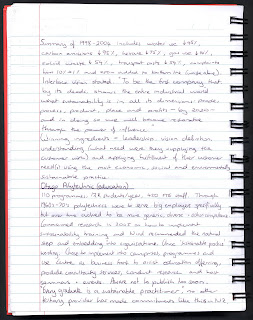The first plenary talk was given by Nicole Foss on peak finance and energy, i.e. preparing for the economic crisis - quite the doom and gloom story! Here's a few snippets of what I picked up on:
To set the scene, Nicole talked about finance being the main driver of our crises, closely followed by energy. She explained the pyramid dynamics of the global financial bubble(s) which created the perception of increasing wealth, with a positive feedback loop (based on hope and greed, i.e. when we borrow for consumption and gambling instead of value creation), and their tendency to collapse, via a negative feedback loop (based on fear, i.e. when debts fail to get serviced). She focussed on the availability of money and its effect on price and affordability; e.g. with an increase in money available, assets get overvalued until price discovery eventually revalues them - although unfortunately affordability is always a step behind as society adjusts. The theme she wanted to get across is: we have the biggest collapse coming up still, no one is able to stop it (governments are always a step behind and kicking the issue along) and so we better prepare to weather it as best we can. It is really unfortunate that in the aim to keep the money circulating our environment keeps getting the raw end of the deal over and over - with 7 billion people this could be really messy! Nothing we all haven't thought about before, aye!? It's disappointing to know that these bubbles have happened before and we haven't learned our lesson(s). Her estimations put the undershoot that happens right after the steep nosedive (everyone is trying to delay) for this one at 1970's price levels - wow, imagine that!
On energy, she spoke about peak-conventional oil and explained our ever decreasing net-energy (i.e. the ratio of energy in:out) and how we will eventually be forced to simplify. A great comment was "we will never run out of oil completely on earth, but there will always be less" which is clear about the fact our futures will be different to what we currently consider conventional. "Lets get our expectations in line with reality!" and "we can rediscover what makes people happy".
She briefly talked about the psychology of economic contractions and outlined it as the increase of fear and anger (often leading to a pointless blame game and shortened time horizon thinking), leading to lack of trust, trade wars and protectionism, then deglobalisation. The centralisation of power that happened during globalisation is difficult to take back to the local level, essentially the only solution she mentioned was to use the power in numbers, i.e. don't leave courageous visionaries vulnerable, if enough people do it at once it is very difficult to stop.
Nicole has looked at the NZ situation and identifies us as vulnerable due to the large housing bubble, and high household debt (e.g. mortgages) which makes citizens very sensitive to interest rate rises. Also, we are a resource export economy, very vulnerable to international trade and demand, and long supply chains for our imports. The global commodity bubble supports our dollar value, but in time our domestic stuff is likely going to be cheaper than overseas products, the better we get at weaning off essential-item imports the less leverage others might have over us. NZ also has mainly foreign owned banks, of places which have big issues of their own, it might be good to know about alternative ways of banking. NZ's comfortable lifestyle gives us a very high complacency atmosphere - probably our biggest hurdle. Disentangling from the global system was cited as our best way forward and biggest challenge. I personally have always had hope that NZ could become a self-sufficient resilient nation. One thing she was very clear on is that we can't expect any of our media and government to be warning us, they are busy trying to halt the 'fear', so we cannot expect them to come up with the solutions top-down. We need to take responsibility here and get ready so that we can help others bridge the gap when the time comes. Her suggestions to us the attendees were: eliminate the dependence on credit, minimize debt, move into value goods, productive land, low-tech transportation, invest in the fabric of our community and move into depression proof employment.
The sweetest thing was that right after her doom and gloom talk, we got to hear a great uplifting
poem (which is one of the first I ever liked, and I'd say has taught me the power of poetry finally). Overall, for the conference it was good for setting the scene as all the other talks had very positive and opportunistic intentions.









